Greek mythology has left us with an invaluable tradition of tales of envious gods, heroic warriors, epic journeys, revenge, and love stories. The corpus of Greek myths is immersive and to cover much of the legends, we will require many volumes of books. However, some of those tales are more beloved than others.
Theogony: Clash of the Titans
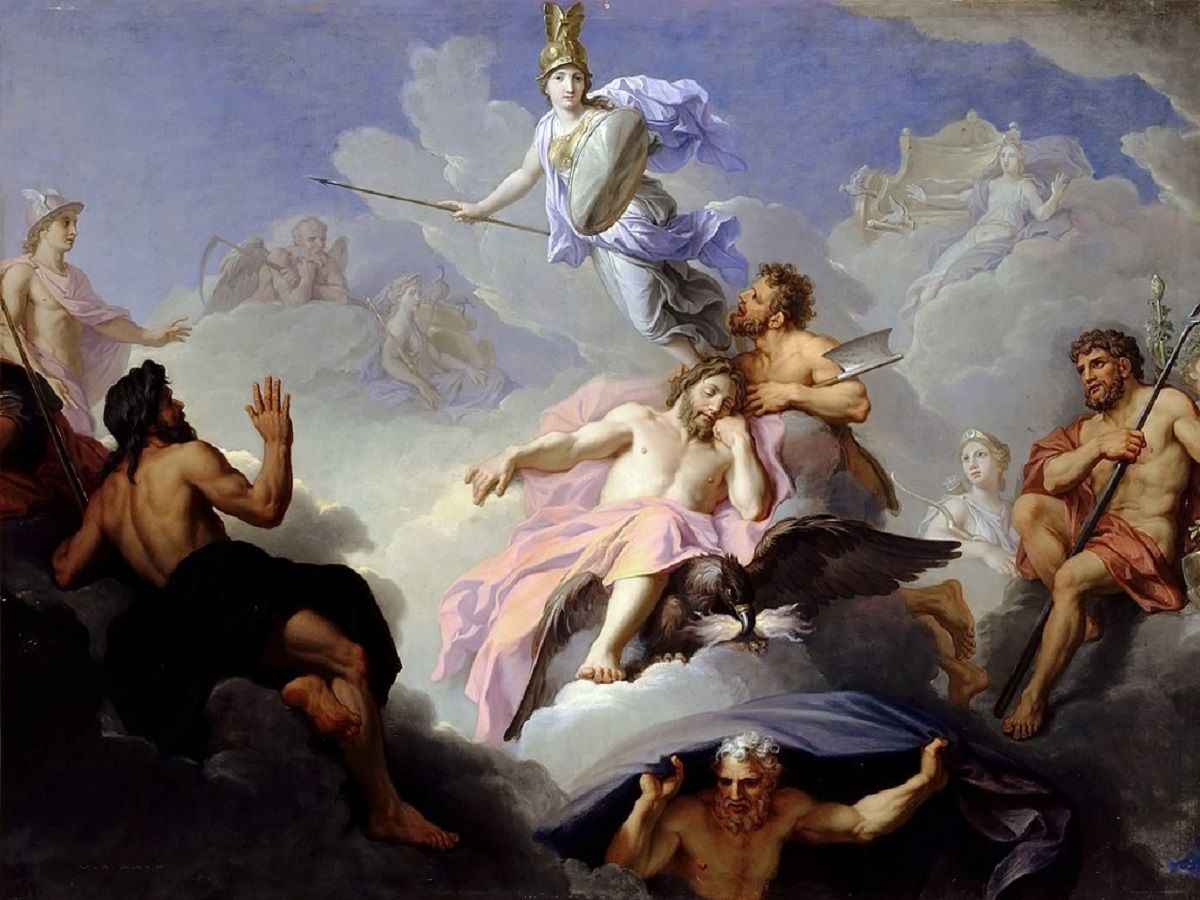
There was just chaos at the beginning. Before the world was born out of chaos and the mountains, the sea, and then the sky (Uranus), with the light, the moon, and the stars, deep darkness overshadowed it. Then Uranus came along with Earth and gave birth to the Titans. But, Uranus was afraid that his throne would be seized by one of his kids. That is why in the depths of the Planet, he enclosed each of them. But he was overcome by his son, Cronus, the greatest of the Titans, who became the world’s king. He married Rhea, who gave birth to Hades, Poseidon, Hera, Hestia and Demeter, two gods, and three goddesses. Yet Cronus inherited his father’s insecurity and assumed that his throne would later be claimed by one of his descendants. So, he swallowed them when they were born. Rhea expected the sixth child, and fearing that her other child would meet the same fate, she secretly gave birth on a mountain in Crete and hid the newborn there. She called him Zeus. By offering him a stone covered in swaddling clothes, which Cronus swallowed thinking it was his newborn, she even fooled Cronus into thinking he swallowed this kid too. The Nymphs took care of Zeus and fed the milk of a goat to the boy. Zeus met his father when he grew up and fooled him into drinking a combination of wine and mustard, causing him to vomit the contents of his stomach ( The older brothers and sisters of Zeus have completely grown out of Cronus!) The great Titanomachy, the battle between the Titans and the Gods, with Zeus as their lord, started this way. For ten years, this titanic war continued. The gods killed the Titans and cast them into Tartarus, as far from the world as the earth is from the heavens, a dark and gloomy place.
Prometheus and the Theft of Fire
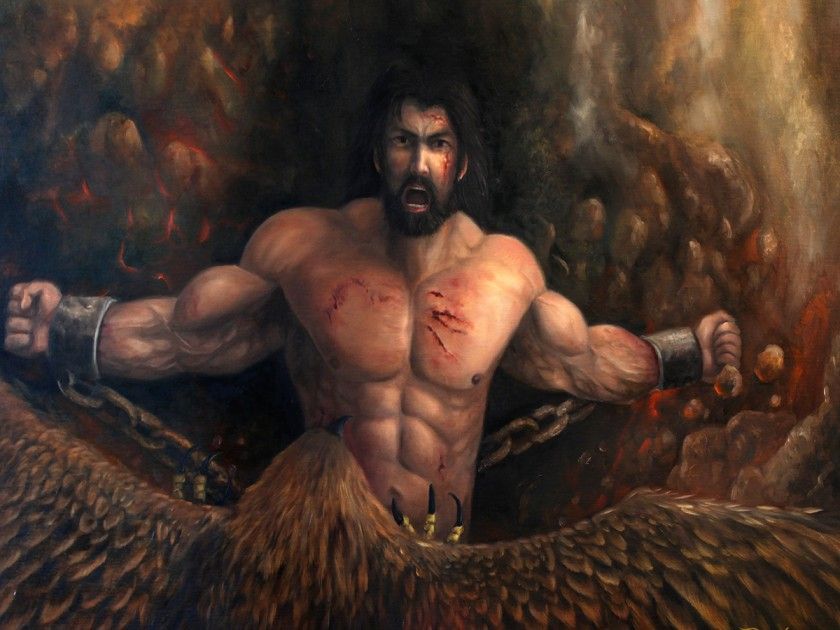
Zeus gave out presents to all the gods one specific day but he didn’t care much for humanity. , The Titan Prometheus felt sorry for the humans and climbed up to Olympus and took the fire from the workshop of Hephaestus, placed it in a hollow reed, and gave it to humans. Humans could build flames, warm-up, and render instruments in this way. When he heard about this, Zeus got very agitated. He brought Prometheus to a high mountain, the Caucasus, and chained him with thick chains created by the smith god, Hephaestus, on a rock. And Zeus would bring an eagle every day which ate the liver of Prometheus. Prometheus remained trapped in the Caucasus for thirty years, until the great hero Hercules, Zeus’ demigod child, eventually freed him from his torture.
Perseus and Medusa
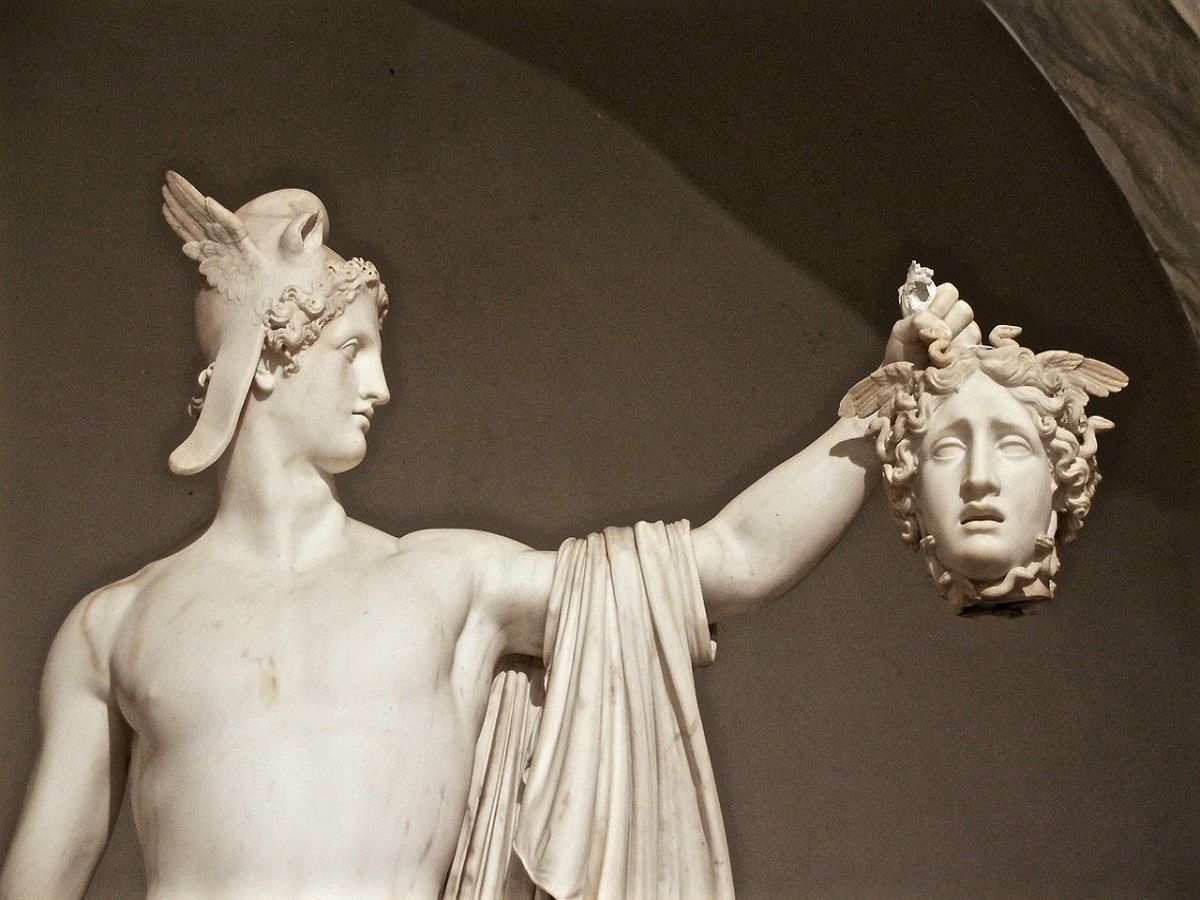
The hideous Medusa had hair snakes and a face that could turn anyone into stone who looked at her. To please his master, Perseus, the warrior, decided to destroy the beast. Wearing a mask of invisibility, while she was unconscious, Perseus sneaked up on Medusa. In the mirror of his shield, he gazed at her then killed her without even having to look directly at her. Perseus, victorious, set off in winged heels.
Also Read, Greatest Cursed Swords ever created
The Greek Myth of Sisyphus
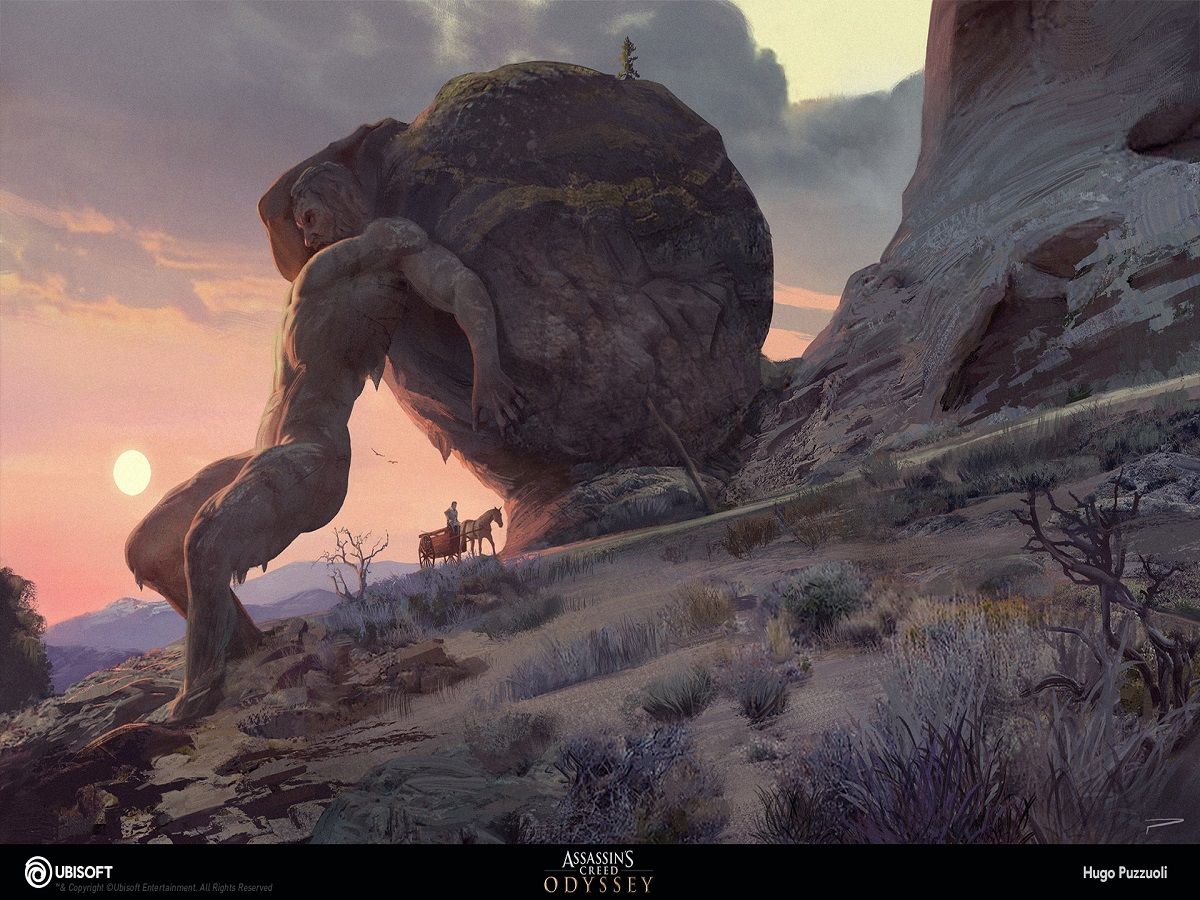
Sisyphus was the king of Ephyra, and his self-aggrandizing craftiness and deceitfulness made him famous. Several times, he opposed the Gods and tricked them with his dishonesty and cunning traits. This behaviour, however, could not be accepted by the gods. It infuriated Zeus, who sentenced Sisyphus to roll up a hill with a huge boulder. It will roll back to the bottom again as soon as the stone approached the highest point of the plateau, forcing Sisyphus to replay the process indefinitely. Zeus invented this duty as revenge for the hubris of Sisyphus against the gods, believing that he a mere human being, could outwit the divine beings.
The 12 Labors of Hercules
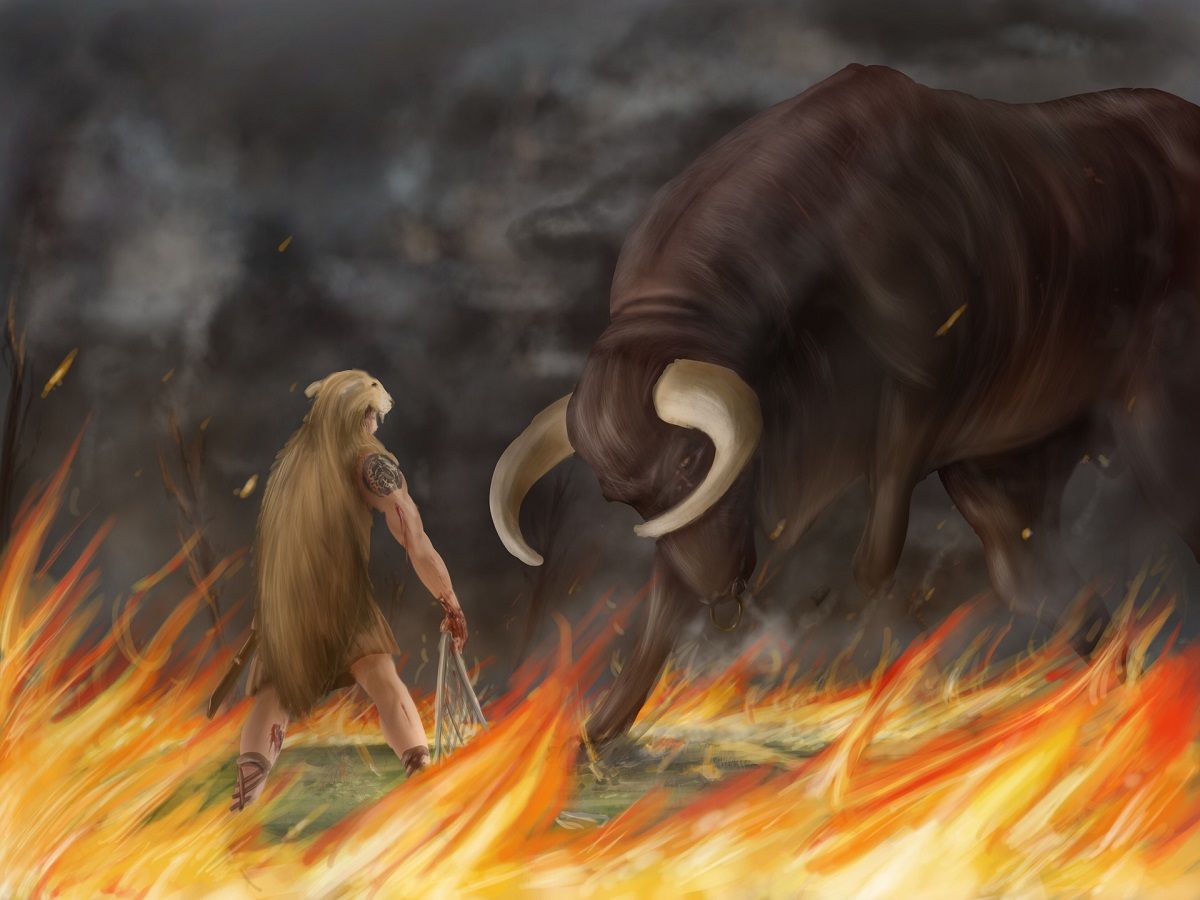
Hercules is Greek Mythology’s most famous hero and well-known for his twelve labours. He was a demigod, son of Zeus and Alcmene. Hera, Zeus’ companion, despised and tried to destroy Hercules. Driven insane by the goddess, Hercules had his own sons killed. He went to Delphi after discovering what he had done and asked Apollo if he could atone for his actions. Pythia, Apollo’s Oracle, instructed him to go to Tiryns to work for twelve years with his nephew, King Eurystheus. Eurystheus, loathing his cousin, set him twelve difficult tasks to accomplish. He commanded him: 1) to destroy the Nemean Lion, 2) to kill the nine-headed Lernaean Hydra, 3) to catch the Golden Hind of Artemis, 4) to capture the Erymanthian Boar, 5) to sweep the Augean stables in a single day, 6) to kill the Stymphalian Animals, 7) to capture the Cretan Bull, 8) to steal the Mares of Diomedes, 9) to acquire the girdle of Hippolyta, Queen of the Amazons, 10) to obtain the beast Geryon’s cattle, Etc.
Icarus
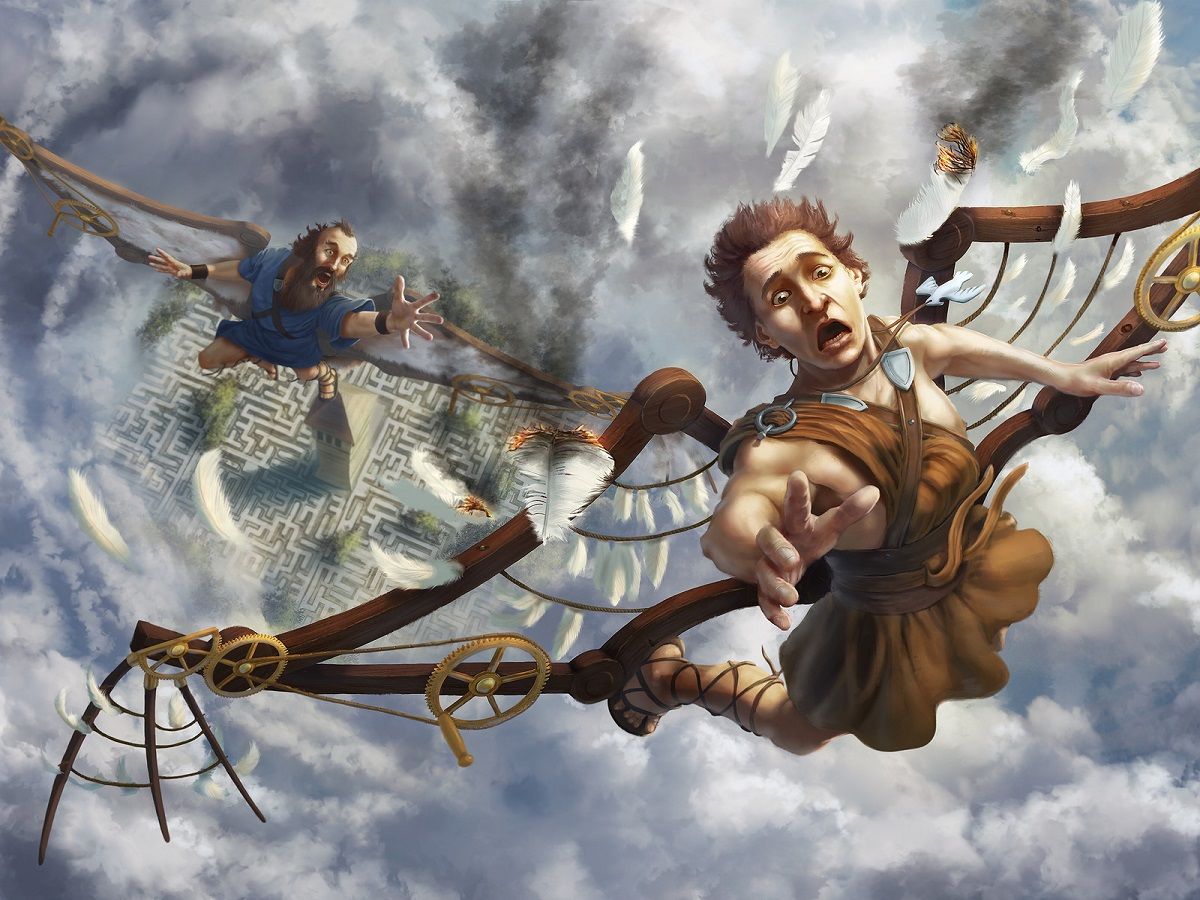
Daedalus, who created the great labyrinth, was imprisoned with his child Icarus by King Minos in a tower in the maze of Crete so that he would not discover the secret of the Minotaur concealed in the maze. Daedalus created a scheme to flee from the tower. To make wings, he will pick quills and use wax to glue the plumes together. Two pairs of wings were made by him, one for himself and one for Icarus. As the wax would melt from the heat and the wings would disintegrate, Daedalus warned his child not to fly too close to the sun. As he was so captivated by the miracle of flight, Icarus did not heed his father’s warning. He soared so close to the sun, burned his feathers, and Icarus fell into the water. This narrative is seen as a parable against the dangers of pride.




























